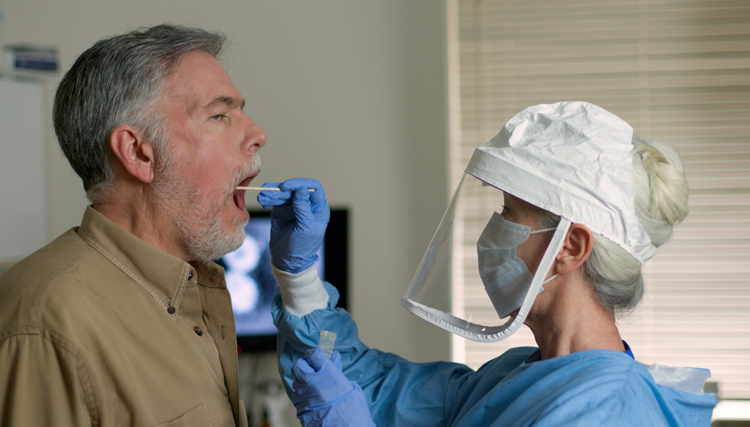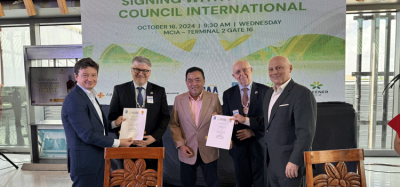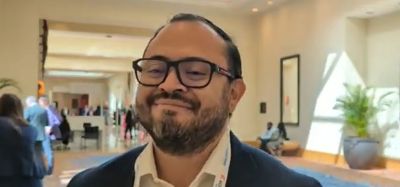ACI World and IATA welcome ICAO manual on testing and cross-border risk management
Posted: 26 November 2020 | International Airport Review | No comments yet
The manual will help to move the industry beyond measures such as quarantine as it provides guidance for countries in implementing COVID-19 testing programmes.


Airports Council International (ACI) World and the International Air Transport Association (IATA) have welcomed the publication of the ‘Testing and Cross-Border Risk Management Measures Manual’ by the International Civil Aviation Organization (ICAO), which provides governments with a risk-based assessment tool for using testing programmes that could alleviate quarantine requirements, as a step forward in promoting the recovery of the global air travel industry.
ACI World believes that introducing a coordinated and consistent risk-based approach to COVID-19 testing will reduce the reliance on measures that restrict air travel and the movement of persons arriving in a country, such as quarantine.
Restrictive quarantine measures are hampering the recovery of air travel, as they provide a disincentive for passengers. Indeed, ACI’s recently published ASQ Global Traveller Survey found that 80 per cent of those who wanted to travel in the coming months would be dissuaded if quarantine was required.
Join us live: Shaping the Next Generation of Hold Baggage and Air Cargo Screening
Join us live for an insightful webinar on 11th December at 14:00 GMT, in collaboration with Smiths Detection, as we explore the strategic balance of operational efficiency, regulatory compliance, and sustainability in high-volume security environments.
This session offers a focused look into future-proofing your security strategy.
Key learning points
- Cost Reduction: Strategies to minimize bag travel time while simultaneously reducing operational costs.
- Regulatory Roadmap: Insights into the next wave of regulatory changes and their impact on future investment decisions.
- Sustainable Systems: Practical approaches to building sustainability into security systems and lowering the total cost of ownership (TCO).
- Scalable Solutions: Real-world examples of scalable systems supporting current airport growth and preparing for tomorrow.
Register now for expert insights, case studies, and actionable strategies on operational efficiency!
The publication of this manual will help to move the industry beyond such measures as it provides guidance for countries in implementing testing as a component of their overall COVID-19 risk management strategy.
ACI World’s Director General, Luis Felipe de Oliveira, said: “The considerable efforts of the aviation industry to navigate the COVID-19 pandemic and to lead a global economic recovery are being severely hampered by restrictive and disproportionate measures, such as quarantine. The aviation industry is united in the view that a coordinated and globally-consistent approach to testing as an alternative to quarantine will have the dual effect of reassuring passengers that air travel is safe and encouraging them to fly knowing they won’t have to quarantine.”
“We are grateful to ICAO for the collaborative approach in producing this manual and we now say to governments that we stand ready to assist in developing a cohesive and harmonised approach to allow us to rebuild air connectivity with airlines and partners in the aviation ecosystem,” he added.
The manual has been prepared by aviation health experts led by ICAO in close coordination with the ICAO Council’s Aviation Recovery Task Force (CART) and with support from the World Health Organization (WHO), United States Centers for Disease Control and Prevention (CDC), European Centre for Prevention and Disease Control (ECDC) and others, as well as aviation medical and health experts from governments and industry. These organisations form the Collaborative Arrangement for the Prevention and Management of Public Health Events in Civil Aviation (CAPSCA).
This encouraging progress follows recent comments from the WHO’s International Health Regulations Emergency Committee Chair, Dr. Didier Houssin, who foresees a role for testing as a means of re-opening international travel without quarantine measures. Following the WHO Emergency Committee meeting on 30 October 2020, he said that: “Clearly the use of the tests is certainly now supposed to have a much larger place compared to quarantine, for example, which would certainly facilitate things considering all the efforts which have been made by airlines and by airports.”
Alexandre de Juniac, IATA’s Director General and CEO, said: “Momentum is building in support of our call for systematic testing to safely re-open borders without quarantine measures. ICAO, working with health authorities and industry, has produced a high-level framework. Health authorities are beginning to explore how testing could supersede quarantine to stop the cross-border spread of the virus. Encouraging results from testing pilot programmes should now give states the confidence to move forward quickly.”
Join our free webinar: Beyond silos: How ecosystem thinking elevates the airport experience
In today’s complex aviation landscape, airports are moving beyond siloed operations to embrace a new era of collaboration. This webinar focuses on how leading airports are using ecosystem thinking to adapt, personalize, and continuously improve every touchpoint, boosting both passenger satisfaction and non-aeronautical revenue.
Date: 13 Nov | Time: 10:00 GMT
REGISTER NOW TO SECURE YOUR SPOT
Can’t attend live? No worries – register to receive the recording post-event.
Related topics
Airport crisis management, COVID-19, Passenger experience and seamless travel, Passenger volumes, Regulation and Legislation, Safety
Related organisations
Airports Council International (ACI World), Centers for Disease Control and Prevention (CDC), European Centre for Disease Prevention and Control (ECDC), International Air Transport Association (IATA), International Civil Aviation Organization (ICAO), World Health Organization (WHO)
Related people
Alexandre de Juniac, Dr. Didier Houssin, Luis Felipe de Oliveira


















